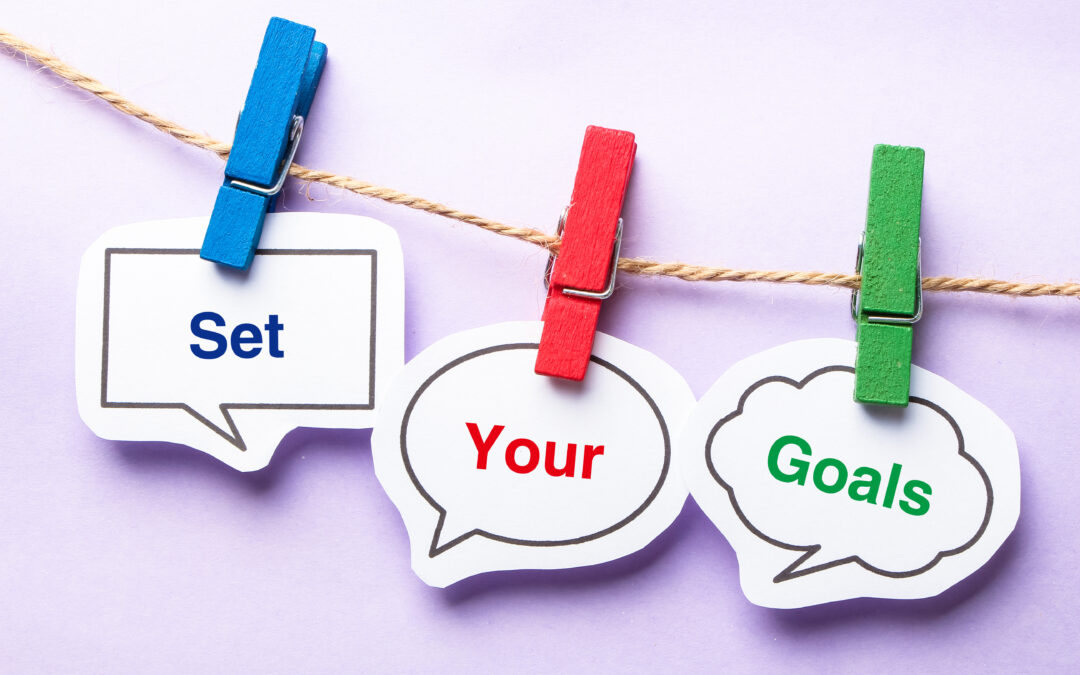Setting Goals.
It’s that time of year, time to plan for effective goal setting. A time when some of us start thinking about goals for the upcoming year. If you are like me, you’ve already started thinking about your 2024 goals. In fact, I have already started completing my effective goal setting worksheet. If you are not a goal focused person, but want to be, perhaps this blog post might get you started. Whether you call them goals, resolutions, dreams, or just things you want to accomplish, creating a plan of action makes it more likely you will do what you say you want to do.
Overcoming Obstacles to Effective Goal Setting.
Let’s first take a look at what gets in the way of goal setting. In my experience, there are four main categories of obstacles that get in the way of not only setting goals but making them a reality.
- Core beliefs. If you think you can accomplish something, then you can. If you think you can’t, then you will almost always prove that you can’t. We are what we think. We can do what we think we can do. That simple theory—we are what we believe—can be applied to anything. If we believe we can make something happen, it will almost certainly happen, or at a minimum, we will be willing to make the effort.
When the idea of going back to school first entered my mind, I would say things like, “I can’t, I’m a high school dropout,” or “I have a criminal record,” or “I’m too old,” or “I don’t have the time,” or a sundry of other excuses. As I consistently made those excuses, I eventually believed what I said. Then once I bought into the “I can’t or no never” mentality, all bets were off.
Getting past old belief systems is not an easy task, but one that
can be accomplished with specific, written, achievable, realistic,
and measurable actions. Staying focused on the goal is the key.
- Fear. Some people think love is the most powerful force; I think it’s fear. Fear, in its myriad forms, has prevented more people from doing what they say they want to do. It has also kept many others stuck in situations they should have let go of years earlier. What are some examples of things we fear? Being discovered for who we really are, that our secrets will be disclosed, fear of being judged, fear of failure or fear of success (BTW, I see these as two sides of the same coin), fear that people will see us differently if we succeed or that they won’t.
In addition, fear is a very powerful foe because it has the ability to convince us that we aren’t really afraid. If we deny the problem, it can never be fixed. If you look closely at fear, you will see that all of it stems from one of two sources: fear of not getting something we want or fear of losing something we already have. Regardless, fear is an obstacle to effective goal setting.
- People. Then there are people as obstacles. They could be your parents, teachers, clergy, coach, or even your best friend who plants negative seeds in your mind by focusing on the “why nots” instead of the “possibilities.” That doesn’t mean you should not look at a situation from all angles. In fact, I believe it is prudent to analyze the pros and cons of our choices, because we get a clearer perspective of what landmines we may encounter. But if we only focus on the negative, that surely will present an impenetrable obstacle.
- Laziness. Finally, this conundrum stops some people from goal setting. They complain about how crappy their lives are, but are disinclined to take an action to change their life condition.
Goal Setting Worksheet
So how do you move beyond the obstacles? Action, action, and more action. In the next few posts, we will discuss in more detail the specific action to take. For now, I invite you to download my complimentary goal setting worksheet and start filling it out.
- Download my complimentary goal setting worksheet.
Start filling it out. - Create a visual reminder of what you want to accomplish.
- Set SWARM goals that are specific, written, achievable, realistic, measurable. (Swarm = taking flight, surging into your next chapter).
- Break down large goals into small manageable pieces.
- Create a written plan of action (Goals Matrix).
- Acknowledge your success—every step of the way.

Francine D. Ward
Attorney-At-Law, Author, Speaker
Follow Francine:
Don’t miss Francine’s Latest Blogs:
- Sweepstakes ScamsSweepstakes Scams. The Federal Trade Commission (FTC) has settled with several operators of a sweepstakes scam. The scam bilked consumers out of millions of dollars. Included in the settlement agreement,… Read more: Sweepstakes Scams
- Incapacity PlanningIncapacity Planning. Incapacity is an unexpected wrinkle in your estate plan. I am a planner. I make plans, I like making plans, and sometimes my plans go awry. Despite any… Read more: Incapacity Planning
- Publishing contractsPublishing contracts The publishing contract is an agreement that defines the relationship between an author and her publisher. Publishing contracts typically contain elements that speak to territory, rights, ownership, financial… Read more: Publishing contracts
- What is a Habit?As we enter springtime, you may feel far away from your New Year’s resolution. That may be because of the success rate of NYE resolutions. In fact, January 17 is… Read more: What is a Habit?
- Common Contract MistakeCommon Contract Mistake #1. Not Having Written Agreements with EVERYONE You Do Business With. Common contract mistake. Without question, the most common contract mistake is not having the terms of… Read more: Common Contract Mistake











